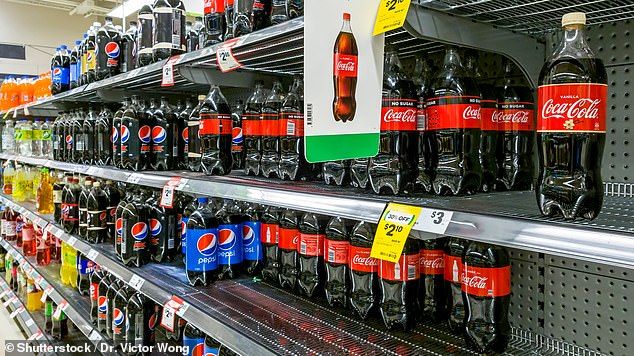A plan to tackle Australia’s obesity epidemic has been criticised for increasing pressures on families’ living costs.
The federal government has proposed a “sugar tax” of up to 20 percent on all soft drinks in a desperate bid to tackle the country’s obesity and diabetes rates.
The tax would also apply to cordial drinks, flavoured mineral waters, energy drinks, sports drinks and fruit drinks.
The government has also proposed tough new restrictions on junk food ads targeting children both online and on gaming platforms.
But the plans have been questioned by opposition health spokeswoman Senator Anne Ruston.
“There are better ways to encourage healthy eating and better preventative health outcomes, without further damaging the pocketbooks of Australian families in the midst of a cost of living crisis,” he said. Herald of the Sun.
Under the government’s proposal, a tax would be added to drinks based on their sugar content.
It is hoped that by imposing the tax, manufacturers will reduce the amount of sugar in drinks and make them healthier for consumers.
The Federal Government has proposed a sugar tax on all “fizzy” drinks, as well as any non-alcoholic beverages sweetened with sugar, such as fruit juices and cordials.
The tax would also be a lucrative source of money for the government: it would raise almost $6.8 billion over the decade if set at 20 percent, according to the Parliamentary Budget Office.
The government also believes demand for more expensive drinks would fall by a fifth.
Committee chairman Dr Mike Freelander said that while the sugar tax would increase drinks prices, it would not apply to other foods.
Dr Freelander said the committee had not calculated how much the tax should be and would consult with manufacturers.
Dr Freelander said the sugar tax and other recommendations were necessary because children under 10 were being diagnosed with diabetes, making it “crucial to reverse a health emergency”.
“This is an important public health measure, we have the support of all the major health organisations in the country and the recommendations must be taken together,” the GP said.
“It will only apply to sugar-sweetened beverages. I don’t think it should be extended to other things, we need to use best practices around the world and the effects will be monitored.”
More than 100 countries currently impose a sugar tax
Studies have shown that if a government imposes a 10 percent tax, this results in an 8.2 percent price increase for consumers.
The committee put forward a number of recommendations, including providing access to national screening programmes for both types of diabetes and giving Australians greater access to weight-loss surgery.
Victorian Council of Social Services chief executive Juanita Pope said that if done correctly, a tax would only have a small impact on low-income household budgets, but the long-term health benefits and savings on medical costs would be huge.


